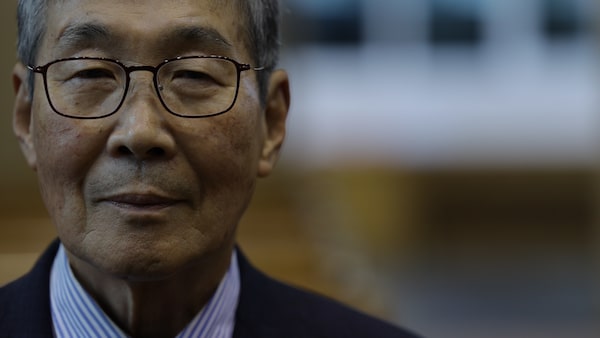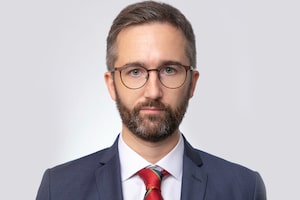
South Korean pastor Song Jung-geun says he witnessed and took part in atrocities as a marine during the Vietnam War.Courtesy Story First
When Song Jung-geun was a soldier during the Vietnam War, his squad carried small cans of food called “C-rations.” As the war progressed, this became the term the men used for killing lone civilians.
“When we killed a larger group, by throwing in a grenade, we called that an ‘A-ration,’” he says in a forthcoming documentary about South Korea’s role in the Vietnam War.
Beginning in 1964, South Korea deployed some 320,000 soldiers to support the United States-led conflict. The country had tens of thousands of troops in Vietnam at any given time. In return, Washington pumped billions of dollars into South Korea in aid and loans.
Today, while the Vietnam War is largely regarded negatively in the U.S., many in South Korea see their country’s role in the conflict as vital for kickstarting its future economic success.
But this perception has started to shift in recent years as the public has gained a more complete understanding of the sheer brutality of the conflict, and of the involvement of South Korean soldiers – like their U.S. counterparts – in alleged war crimes.
Mr. Song, now 78 and serving as pastor of a church in Busan, on the southern tip of the Korean peninsula, is one of a number of veterans who have begun to speak out about their own roles in the war, and the atrocities they say they saw and committed.
“‘About 80 per cent [of Vietnamese people] are disposable,’ that was the order from above,” Mr. Song says in the documentary, The Confession: A Pastor and a Massacre Perpetrator, advance footage and materials from which were shared with The Globe and Mail.
Mr. Song was a member of the 2nd Marine Brigade, known as the “Blue Dragons.” The unit has been linked to two massacres carried out in the villages of Phong Nhi and Ha My in February, 1968, that were witnessed by U.S. soldiers and recounted in a contemporary report that was kept secret for decades.
Fifty years after the massacres, in 2018, a group of South Korean lawyers organized a “people’s tribunal,” which included testimony from survivors and former soldiers. A panel of judges ruled in favour of the victims and called on the South Korean government to pay them compensation and launch its own investigation.
One of those who testified was Nguyen Thi Thanh, who was eight years old when South Korean troops arrived at her village. Soldiers shot her in the stomach, leaving her for dead, and killed her brother and sister.
“I couldn’t understand why this tragedy had happened to my family,” Ms. Thanh told reporters in 2018. “Fifty years later, I still do not understand the reason for the brutal massacre that day.”
Ms. Thanh and another victim are currently suing the South Korean government for compensation. One of her lawyers, Lim Jae-sung, said a verdict is expected by the end of the year.
For more than 50 years, Mr. Song did not speak publicly about his actions in Vietnam, even as he remained active in veterans organizations, where he would sometimes discuss the massacres with other ex-soldiers.
Filmmaker Song Dae-il said he heard of Mr. Song’s story from another veteran and tracked him down. (The two men are not related.) The timing turned out to be perfect. Having wrestled with his crimes privately for years, the older man wanted to unburden himself.
Mr. Song told the filmmakers he took part in “scorched earth” operations, destroying villages thought to house Viet Cong guerrillas or sympathizers. Sometimes soldiers would force whole families to climb into hastily built bomb shelters, he said, dropping in a grenade after them so the hole that was supposed to protect them became their mass grave.
“We concluded that it was impossible to distinguish between civilians and soldiers,” he told the filmmakers. “We burned down almost all villages within our operational field.”

South Korean veterans of the Vietnam War have long pushed back against claims they committed war crimes.Courtesy Story First
The team was concerned about the repercussions Mr. Song could face in a country where speaking about the Vietnam War remains taboo. But after repeated discussions and follow-up interviews, the old pastor was certain he wanted to proceed.
“His description … was so detailed and shocking,” Song Dae-il told The Globe. “Although we filmed the interview, we were hesitant to produce a documentary. But we believed we should not turn a blind eye to the courage he showed.”
Mr. Song’s testimony forms the heart of The Confession, which also examines just why it has taken so long for the truth to come to light. In the early 2000s, when the left-wing South Korean newspaper The Hankyoreh began publishing a series of investigations into the Vietnam War, its headquarters were attacked by veterans groups, the lead journalist was sued for libel and a former soldier who spoke to the paper renounced his testimony under public pressure.
Song Dae-il said that when his team approached South Korean broadcasters about their film, several expressed interest but were too wary of potential backlash to proceed. He said he suffered from stress-induced insomnia at the start of the project.
Mr. Lim, the lawyer representing Vietnamese victims suing the South Korean government, said that while there has been a sustained debate about South Korea’s role in the war for more than seven years now, “I don’t think it has yet created a major change in public perception.”
Despite the expected backlash, Song Dae-il said he didn’t “want to be too pessimistic.”
“We’re not producing this documentary to be hostile towards any individual or group,” he said. “There are a great number of people who want to understand this matter. We believe the problem lies with the government, as they want to cover up the truth.”
His team is currently crowdfunding to finish the documentary and support its release. They are also aiming to fund future projects that will dive deeper into South Korea’s role in Vietnam, possibly by telling the stories of survivors of the massacres at Phong Nhi and Ha My.
Song Dae-il said he hopes the documentary and subsequent films will “provide practical assistance to the victims,” adding that uncovering the truth about South Korea’s role in the war “is the first step we must take in apologizing.”
Our Morning Update and Evening Update newsletters are written by Globe editors, giving you a concise summary of the day’s most important headlines. Sign up today.
 James Griffiths
James Griffiths